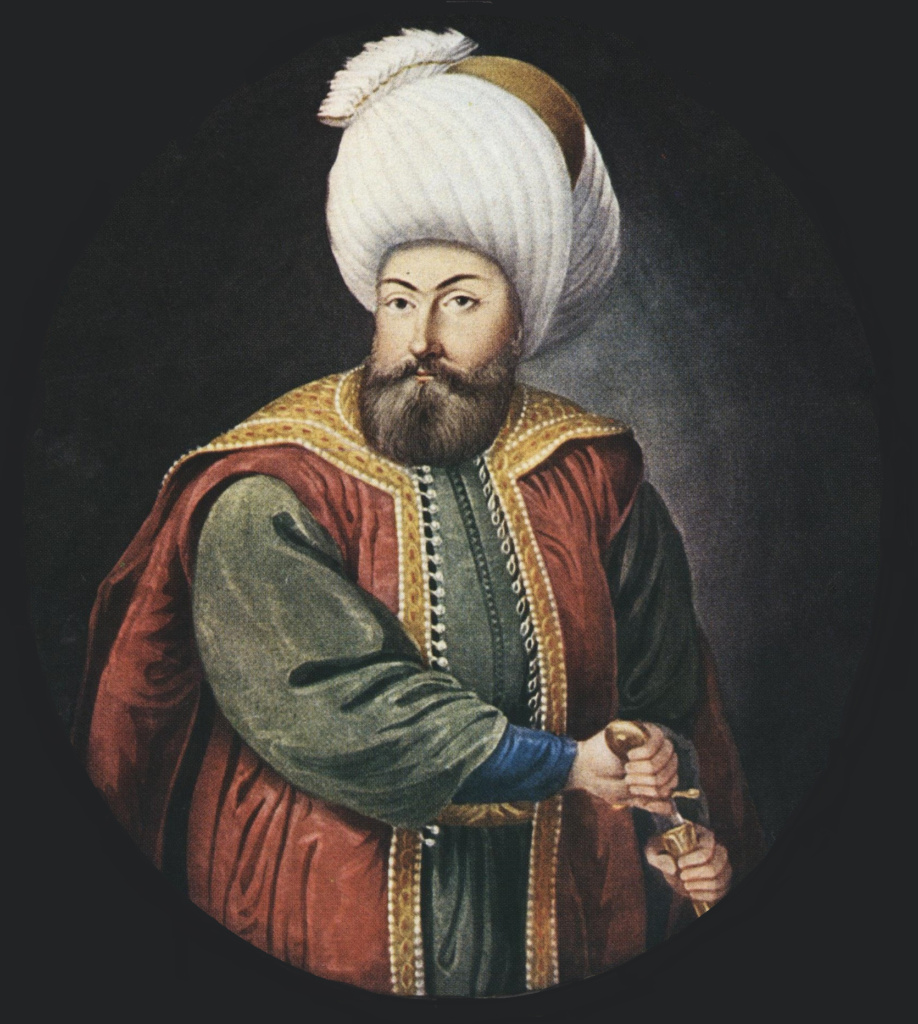Osman I Summary
The Ottoman Empire was founded by Osman I, often known as Osman Ghazi, who is regarded by many historians as the greatest tsar of the empire. He is frequently referred to be the founder of modern Turkey and is credited with laying the nation’s foundations.
Osman, a devout man who was born in Erzincan in 1238, lived a life devoted to advancing the glory of God. His sphere of influence extended from Egypt and Khorasan to Hungary and Central Europe. Because of his accomplishments in uniting several Turkic tribes into a single empire and his struggles with Venice, which led to the capture of Constantinople, he is regarded as one of the most successful sultans in history.
We will discuss Osman’s development from an Ottoman Beylik ruler to the country’s founding father in this blog. We’ll talk about his geopolitical background, his victories as the Ottoman Empire’s ruler, the siege of Bursa and his death, as well as his domestic life and legacy.
Osman Ghazi Facts

Born:- 1258, Sogut
Died:- 1324, in Sogut
Parents:- Ertugrul Ghazi, Halima Sultan
Wives: Rabia Bala Hatun, Malhun Hatun
Brothers:- Gunduz Bey, Savci Bey
Definition
The Ottoman Empire is credited with having been founded by Osman I. Osman I oversaw a military offensive against the Byzantine empire in 1453. Success in the campaign allowed Orhan to become the first Ottoman tyrant to extend his control outside of Anatolia. He established Istanbul as the empire’s new capital after taking Constantinople, designating it as the imperial seat. Osman I became the ruler of modern Turkey as a result, and his kingdom also included Anatolia and parts of Europe.
Osman I died in 12 despite this accomplishment, but his kingdom grew under his successors who established a strong government and developed institutions for ruling the realm. These actions created the framework for contemporary Turkey.
Osman Ghazi Early life
In Erzincan, Othman was born in 1326, and his father, Ebu’l Dilhan, was a Turkoman slave. He began his career as an imam or sheikh in his tribe and, by 1364, had ascended to the position of sultan of the Erzincan Empire under the name “Ebu’l-Hassan” or “Ebu’l Hassan.” During his rule, empires first reached out to the east, settling in Georgia (1386), Armenia (1394), and Azerbaijan (1395). (1396).
The Sultanate of Erzincan, which included Kars and Ardabil, grew northward in 1398, extending into what is now eastern Turkey. By the 1400s, the Sultanate of Erzincan had grown to become one of Central Asia’s biggest states.
After incursions by Timur (Tamerlane) in 1402 and Murad II in 1422–1423 the sultanate eventually fell.
Osman was installed on the sultanate’s throne.
The Ottoman Empire and the Russian Empire engaged in a protracted and bloody war known as Osman I in the middle of the 18th century. The Ottoman Empire lost a large portion of the territory it had gained in earlier conflicts as a result of the conflict. Additionally, it caused the displacement of millions of people and the loss of over two million lives. The Ottoman Empire’s significant political and military flaws were exposed by the war, which ultimately contributed to its downfall as a leading world force.
Osman Rise to Power
The Ottoman Empire was established by Osman I, who also served as its first sultan. After organising an effective military operation that culminated to the conquering of the city of Bursa, he ruled from 1444 until 1446. The empire expanded quickly in terms of its economy, society, and culture while he was in charge. Several catastrophic conflicts, including the Battle of Varna, which resulted in the loss of a sizable portion of Hungary’s land, occurred during his rule. Osman I is regarded as one of the most powerful and influential sultans in Ottoman history due to his contributions to the expansion of the empire’s economic and military might. By establishing free education for ladies, enacting new commercial taxes, and constructing infrastructure like roads and hospitals, he is credited with modernising the empire.
Conquests of Beylik
Osman I, who established the Ottoman Empire, is recognised as one of history’s greatest military leaders. He ruled from 1444 to 1481, and during that time he oversaw a number of wars, conquests, and conflicts that significantly increased the empire’s territory. He became one of the most prominent leaders of his era as a result of his victories, which brought the entire region under Ottoman dominion. Osman is also remembered for his brutal treatment of his opponents, strict implementation of Islamic law, and for founding a university that taught science and astronomy to aspiring students. He became a contentious and divisive figure in his era as a result of all this. But he is widely recognised for laying the groundwork for the contemporary Turkish state.
Prusa’s Siege and Death
Suleiman the Magnificent, the Ottoman monarch, besieged Prusa in 1529 with an army of 250,000 troops. The siege lasted for over four months and resulted in the deaths of an estimated 25,000 Christian defenders. The sultan ultimately captured the city and massacred its inhabitants, as well as capturing thousands of prisoners for his army’s slaves. This siege is considered by many historians to be one of the Ottoman Empire’s most devastating campaigns and is remembered as one of the sultan’s greatest victories.
Domestic Affairs & Legacy
Osman I was the founder and first sultan of the Ottoman Empire, which he led to military success during his reign. Under his leadership, the Ottoman Empire conquered much of Europe and the Middle East, from the Balkans to Anatolia and Iran. Under Osman I’s reign, the empire became a major power in the region, with a strong and stable government and economy. However, Osman I is also known for his ruthless violence and dictatorship. He is credited with leading the empire to its greatest period of prosperity, but is also controversial as his rule is considered to have been marked by brutality and oppression.
See Also:- The Times Project









